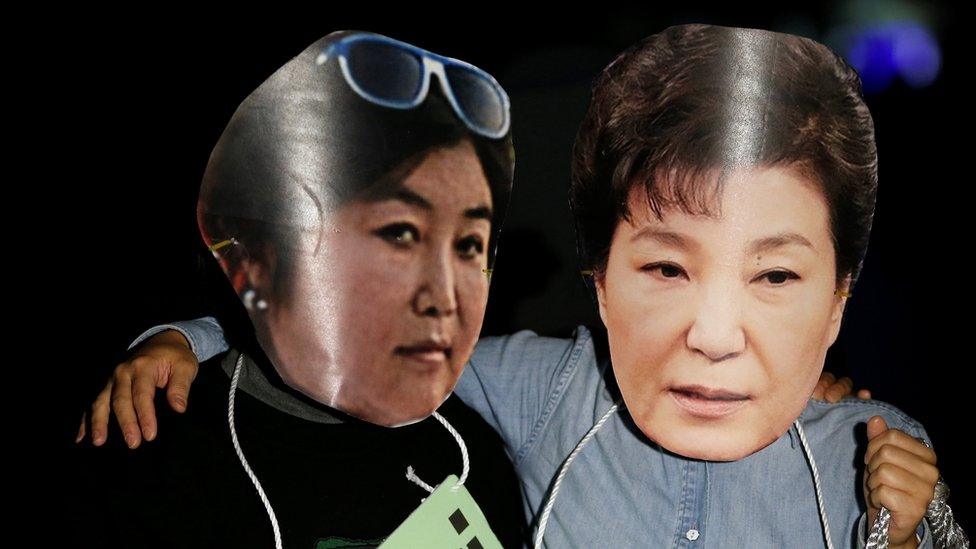Will South Korean president Park Geun-hye be impeached?
- Published
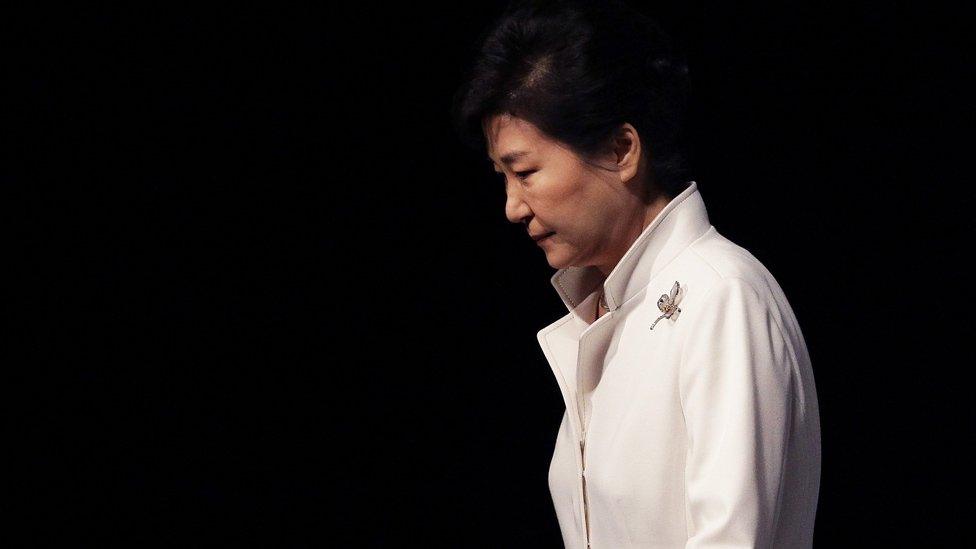
Ms Park is the daughter of former strongman leader Park Chung-hee
The South Korean parliament is likely to vote on whether to impeach the country's president. If they succeed, Park Geun-hye would be the first president to be removed from office.
Let's define some terms. Impeachment is the process of getting rid of an official. It is not the end of the process - the sacking of the official - but the process itself.
It is like a trial but done by a country's ruling assembly and ultimately the country's highest court, rather than an ordinary criminal court.
Just as in a trial, the result may be an acquittal - Bill Clinton was impeached in 1998 but stayed in office when, at the end of the process in 1999, the Senate voted against his dismissal. Those who voted for impeachment did not even get a plain majority, let alone the two-thirds majority necessary to succeed.
In the case of the South Korean president, the National Assembly has to get a similar two-thirds majority before Ms Park can be stripped of office.
There are 300 members in total so they need 200. At the moment, there are 172 non-government party lawmakers who want the president removed. That means the opposition needs 28 of the 128 lawmakers from the governing conservative Grand National Party to join them.
There is a narrow window in which this can be done, from Friday 2 December to Friday 9 December. After that the parliamentary session ends and all bets are off, probably over the winter break (though, in theory, the assembly could be recalled for a special sitting).
If the Assembly did vote to do the deed (the two-thirds finding of guilt), sacking the president would still need the agreement of six of the nine judges on the country's Constitutional Court.
Even if lawmakers (not to mention the public and papers) overwhelmingly wanted to end President Park's rule, the judges could block it and she would keep the presidency.
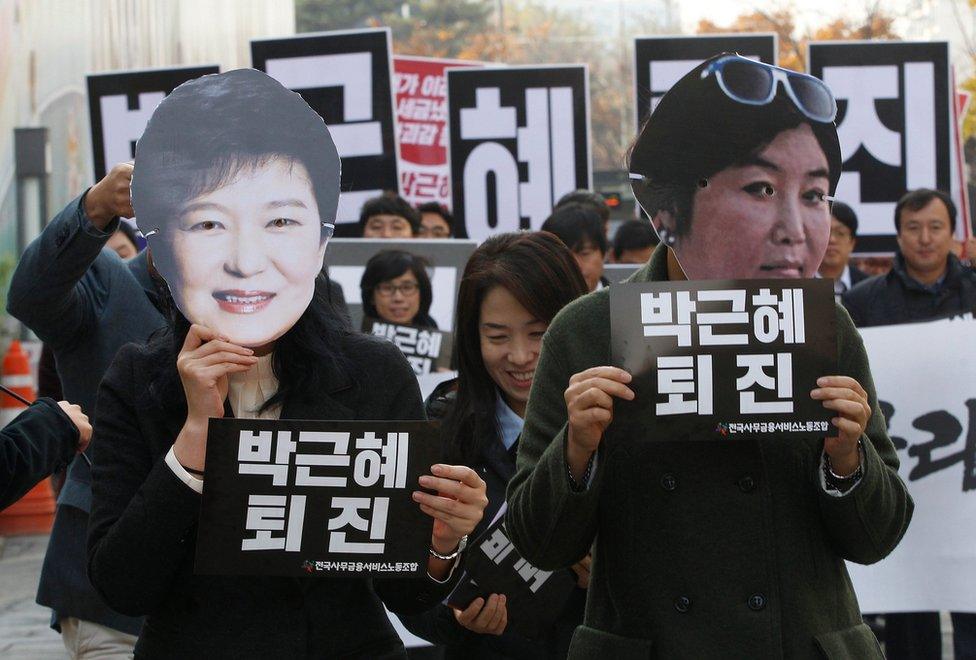
The scandal is centred on the close relationship between Ms Park and Ms Choi
During any impeachment process, President Park would step aside from her duties and the government would be led by the prime minister.
If, at the end of the process, the votes were not there or the judges do not support her removal from office, she would return and see out her term which is due to end at the end of next year.
If on the other hand, she was stripped of office, she could face trial. The prosecutor has already said he thinks she was complicit in the corrupt scheme with which President Park's long-time friend Choi Soon-sil is already charged.
Would she be found guilty at trial? That is by no means clear. She has denied wrongdoing and as she put it in her statement on Monday: "With the problems that have surfaced, I thought at the time we were pursuing a public project and it was not in any way for my personal benefit, and I didn't profit personally in any way."
The difficulty is that we do not know precisely what the allegation is. Broadly, it is that Ms Choi controlled two funds and pressured companies into donating tens of millions of dollars on the strength of her link to the president.
The funds were ostensibly for good causes - one for sports promotion - but we do not know what their actual purpose was. If President Park was not aware of (or cannot be proved to have been aware of) illegal alternative uses, then she may well be in the clear.
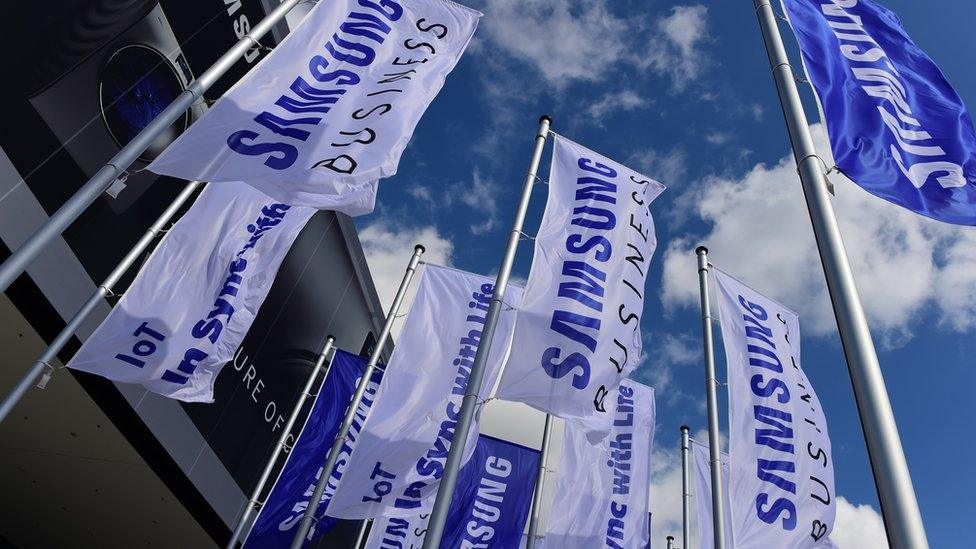
Samsung is one of a number of high-profile Korean companies to be drawn into the scandal
It may be a similar situation with the companies being investigated. A string of the biggest conglomerates in Korea from Samsung down have had their offices raided and computer hard drives taken away.
We do not know if that is because the companies and their computers may have evidence of the corruption of others like the president and her friend, or whether it is because they are suspected of corruption themselves.
They definitely paid money to the contentious funds - in the case of Samsung about $3m (£2.3m) - but how much pressure was put upon them? Were specific promises made of payback in favourable treatment?
The upshot of all this is that any proceedings against President Park make take many months. She would be the first sitting president of South Korea to be deposed in the democratic era and she will clearly fight tooth-and-nail to avoid that dishonour.
Her concession that she would be prepared to step down makes a longer process more likely because it opens the way for negotiation. It may persuade lawmakers in her own party to stay with her a little longer in the hope a less dishonourable deal can be done.
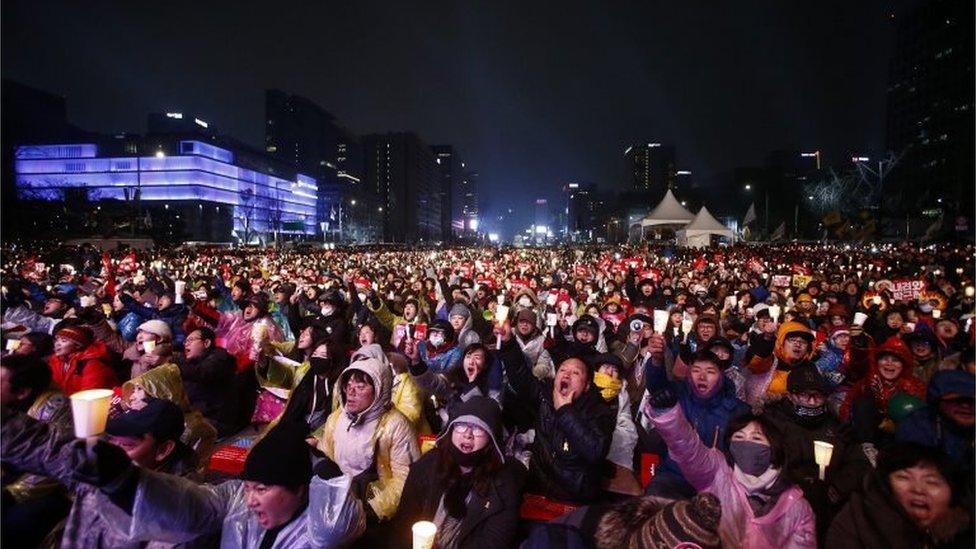
Hundreds of thousands of protesters have demanded the president's resignation
Some have criticised her apology, in which she said that her personal mistakes had "caused grave concern to the Korean people. Watching the people's hearts being broken, my heart is also distraught, knowing that a hundred apologies will not be able to ease the disappointment and anger of the people".
So what had she done wrong? "My big mistake was not being able to manage the people around me," she added.
The people may feel that she has been disloyal to them, in which case they may turn on her - and they know the detail of whatever crime was or was not committed.
A circular firing squad may have formed.
- Published29 November 2016
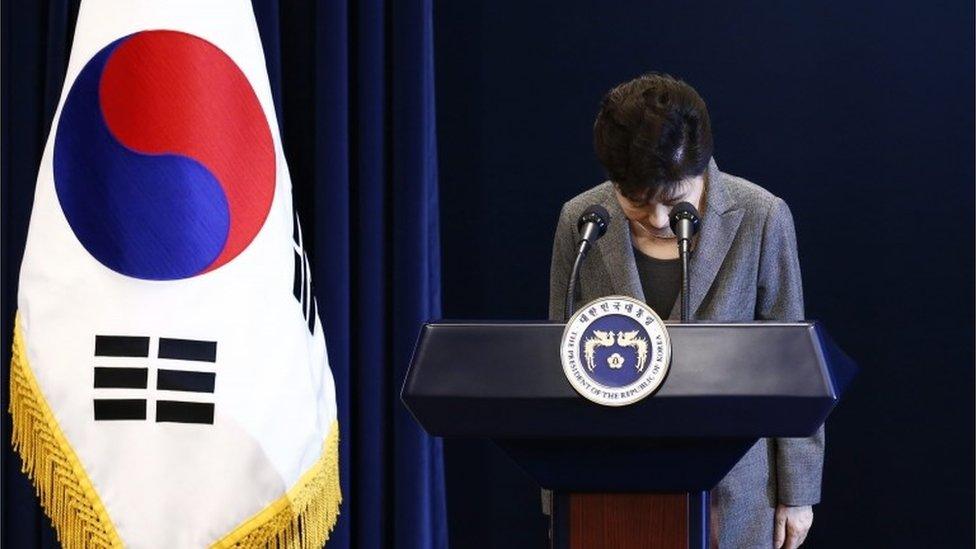
- Published6 April 2018
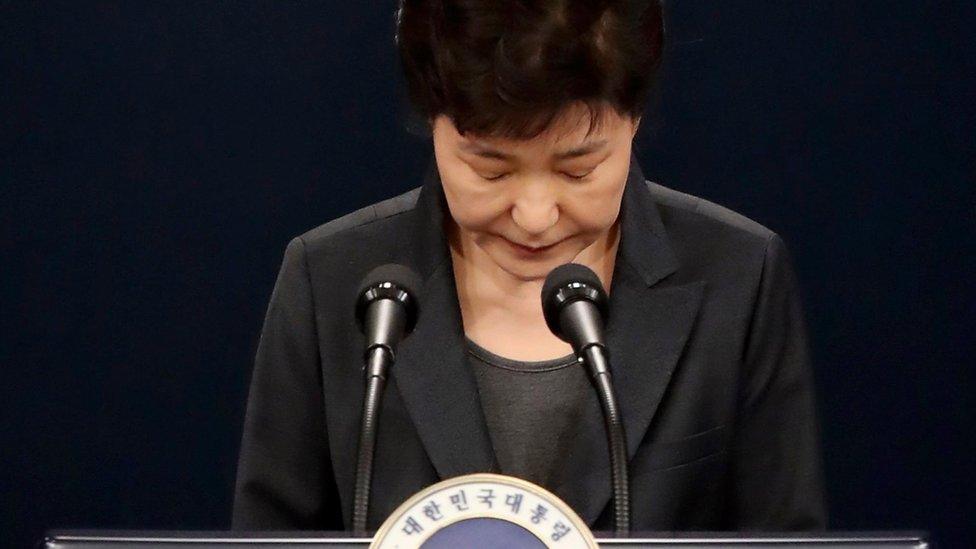
- Published6 April 2018
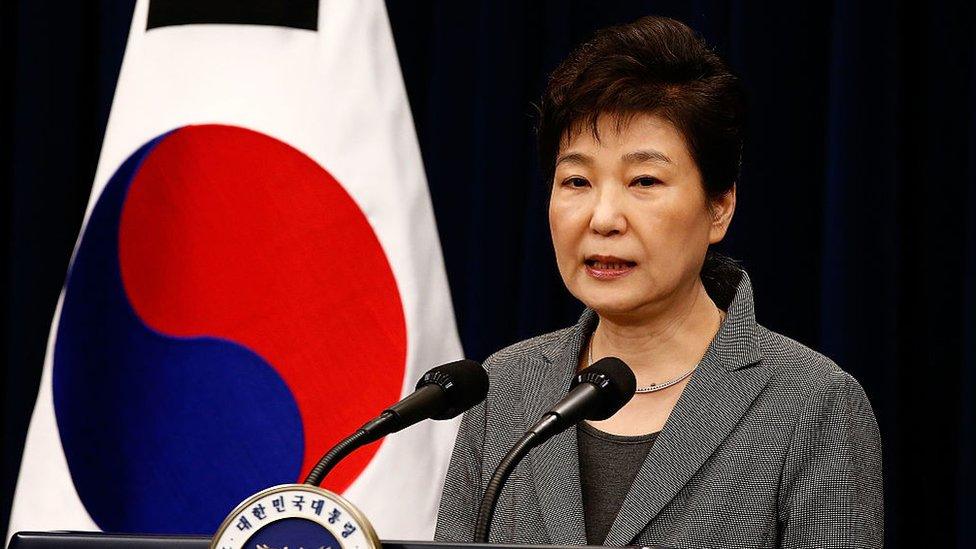
- Published8 November 2016
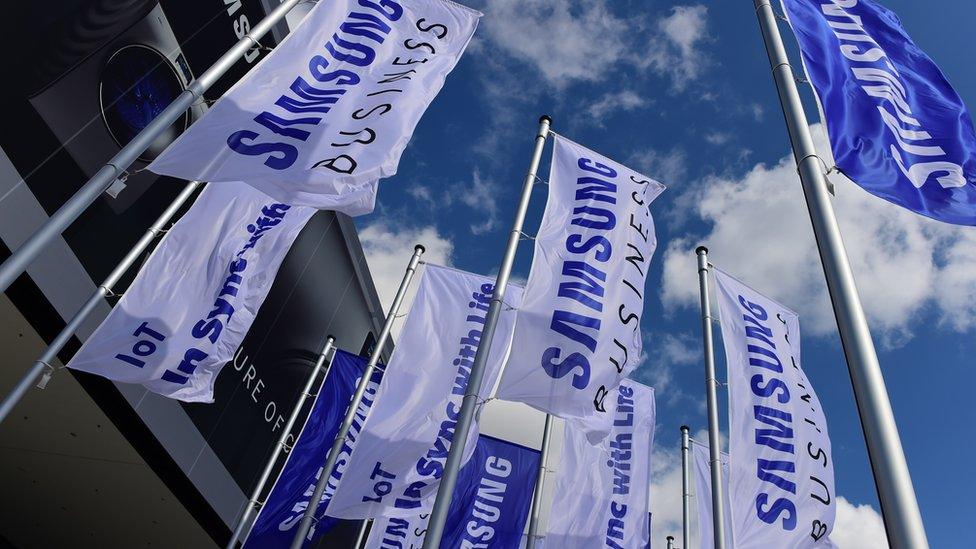
- Published31 October 2016
